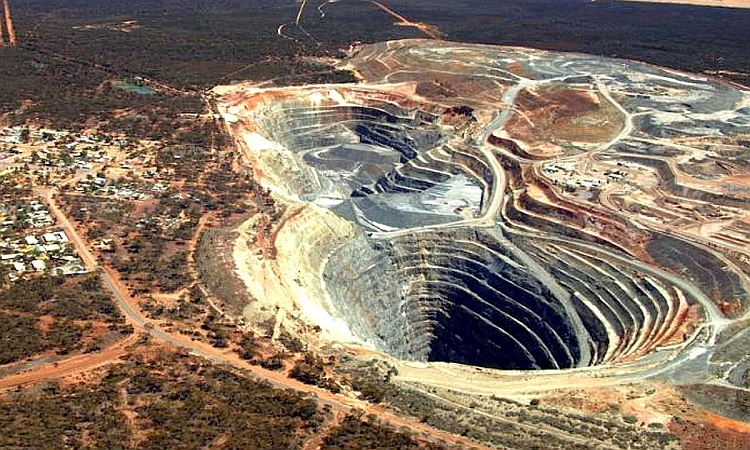India has now secured the seventh largest position in terms of global lithium reserve. In a groundbreaking development, the Geological Survey of India has identified a whopping 5.9 million tonnes of Lithium inferred resources (G3) in the scenic province of Jammu & Kashmir.
Lithium is a highly valued metal that is essential for the production of rechargeable batteries, which are used in a wide range of electronic devices, from smartphones to electric vehicles. The demand for lithium has been growing rapidly in recent years, as global efforts to transition from fossil fuels to clean energy sources continue to gather pace. This has led to a worldwide search for new sources of lithium, and India, with its vast mineral resources, has emerged as a key player in this market.
According to a recent study by the Geological Survey of India (GSI), lithium reserves in the country are estimated to be around 10,000 metric tonnes, with the potential for significant further exploration and discovery. These reserves are primarily located in the states of Karnataka, Tamil Nadu, and Rajasthan, with some additional prospects in other parts of the country such as Jammu & Kashmir.
From importer to exporter
The discovery of lithium in India has generated considerable excitement among investors, policymakers, and businesses, who see the potential for the country to become a major producer and exporter of the metal. India has historically been a net importer of lithium, with most of its supply coming from countries such as Australia, Chile, and Argentina. However, with the advent of domestic reserves, this could soon change.
One of the key advantages of domestic lithium production is the potential for lower costs. Currently, India’s lithium imports are subject to a range of customs duties and other taxes, which can make the metal significantly more expensive than in other countries. By producing lithium domestically, India could avoid these costs and make it more affordable for businesses and consumers alike.
Another advantage of domestic production is the potential for greater control over the entire supply chain, from mining and refining to battery manufacturing and recycling. This could help to create new jobs and stimulate economic growth, particularly in regions that are currently underserved by the industry.
Lithium can help India transition from fossil fuels to clean energy
Lithium is a key component in manufacturing lithium-ion batteries, which are widely used in renewable energy storage systems. By leveraging its natural reserves of lithium, India can develop a robust battery manufacturing industry and accelerate the transition to clean energy.
Here are some ways in which lithium can help India transition from fossil fuels to clean energy:
- Electric vehicles: India is rapidly moving towards electrification of its transportation sector. Lithium-ion batteries are the most widely used batteries in electric vehicles, and their demand is expected to grow exponentially in the coming years. By developing a local lithium supply chain and battery manufacturing industry, India can lower the cost of electric vehicles and make them more affordable for consumers.
- Renewable energy storage: India has set ambitious targets for renewable energy generation, but the intermittency of wind and solar power is a challenge. By using lithium-ion batteries for energy storage, India can ensure a steady supply of clean energy to the grid. This will reduce the need for intermittent backup power from fossil fuels and improve the reliability of the grid.
- Smart grid technology: Lithium-ion batteries can also play a crucial role in the development of smart grid technology. By installing battery storage systems at the distribution level, India can enable more efficient management of the grid, reduce transmission losses, and improve energy access in rural areas.
Overall, investing in lithium extraction and battery manufacturing can significantly boost India’s transition to clean energy and position it as a leader in the global clean energy market.
Potential challenges & risks
However, there are also some potential challenges and risks associated with domestic lithium production. One concern is the potential impact on the environment, particularly in areas where mining may take place. Lithium mining can be a highly water-intensive process, and there are concerns about the potential for contamination of soil and water sources, as well as the potential displacement of local communities.
Another concern is the potential for geopolitical tensions, particularly with neighboring countries such as China, which is also investing heavily in lithium production and may view India’s efforts as a threat to their own interests. This could lead to trade disputes or other political tensions, which could have negative implications for the wider region.
Overall, the discovery of lithium reserves in India represents a significant opportunity for the country to become a major player in the global lithium market. However, it is important that any expansion of lithium production is undertaken in a responsible and sustainable manner, with full consideration given to the potential environmental and social impacts of mining activities. By achieving this balance, India could reap significant economic and environmental benefits from the growing demand for this valuable metal.
Do you have a question about this article or about doing or growing your business in India, please get in touch with us here or by filling in the form below.
Source image: Khabar Infra

